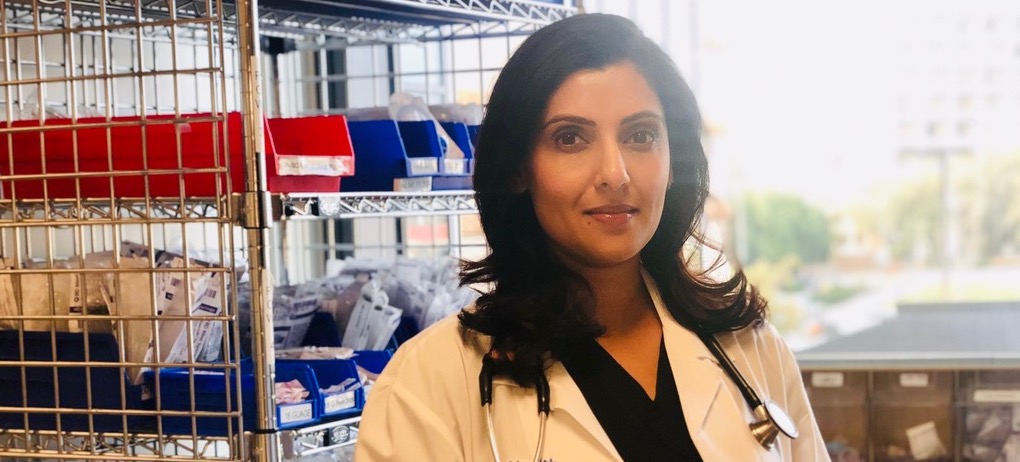From California to VCU, through distance learning, to earn a Doctor of Nurse Anesthesia Practice (DNAP) degree
In high school, Nilu Patel dreamed of being a nurse. She could picture herself at her patients’ bedsides, helping them manage their recovery and feel better.
When she finally made it to her first hospital rotation, as a nursing undergraduate, she was surprised to discover that she didn’t really like it. She was assigned to help care for an older woman, and “it wasn’t what I thought it would be,” Patel said. “I don’t like seeing patients in pain.”
Fortunately, that opened another door as she learned about nurse anesthesia – and she quickly continued her education to earn her master’s degree. Patel found nurse anesthesia was the perfect match because, “I relieve people’s pain in my own environment, which is the operating room.”
As soon as she earned her master’s, she set yet another goal for herself: Earn her DNAP degree within 10 years. Married with two young sons, she started on the doctoral program at VCU with just one year before her self-imposed deadline.
“VCU appealed to me because of its patient safety focus,” said Patel, a senior CRNA with the UC Irvine Medical Center. As part of the surgical team, she plays a pivotal role in ensuring that each action taken in the operating room is done with the patient’s best outcome in mind.
Completing the doctoral program through distance learning and scheduled trips to Richmond, Patel found that VCU empowered students both with the best and latest information to be expert practitioners – but also to be the strongest advocates for their industry.
Over time, she has deepened her outreach with patient safety, leading a UCI team to develop new communications protocols as patients move between departments in the hospital. “The care of a patient can be among many providers in a given day, especially on the day of surgery,” said Patel, who worked with the hospital’s technology team on a tool that easily integrates with the facility’s electronic medical record system. Key information – including critical medical issues (including allergies), anesthesia provided, surgical notes and more – can be extracted so that post-surgery medical providers have the information they need to best care for their patients. Previously, providers needed to log into two different databases to find information.
“This took a lot of time, and – in an emergency, when time is critical – a one-page pop-up of a patient’s pertinent medical history makes it easier and safer,” said Patel, adding that patients can’t communicate what occurred in the operating suite while under anesthesia.
Patel now splits her time between the hospital - which is a level-one trauma center that sees every possible type of surgical case -and teaching, using her DNAP degree to help train the next generation of nurse anesthetists. In fact, soon after she earned her VCU degree, she developed and managed a conference aimed at patient safety, featuring a keynote by a VCU classmate.
For several years, Patel has also been involved with the California Association of Nurse Anesthetists. She recently completed a two-year term on the board.
“The faculty and the education I received at VCU inspired me to become a leader within my profession,” Patel said. “The program prepared me to make my mark on the profession through innovation, political advocacy and teaching the next generation of CRNAs. By advocating for CRNAs and working together with other leaders in health care, we can strive to make health care delivery better for everyone.”
